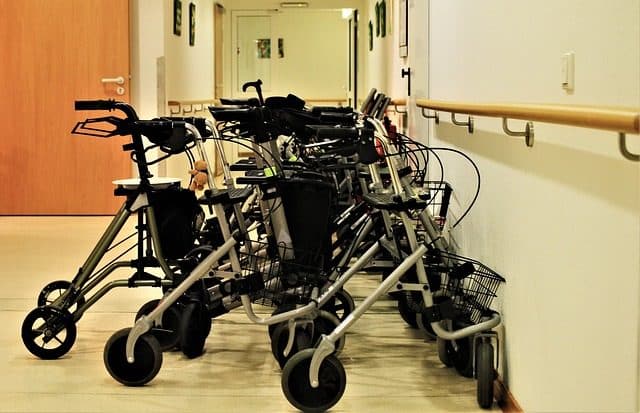Montana offers a variety of nursing colleges and programs, each designed to equip students with the skills needed for a successful nursing career. With diverse options ranging from associate degrees to advanced practice nursing, aspiring nurses can find a program that suits their needs and aspirations.
For anyone looking to enter the nursing field, understanding the landscape of Montana nursing colleges, schools and degree programs is essential. This guide will provide an overview of how to choose a nursing program, the benefits of becoming a nurse in Montana, and the best institutions to consider.
Table of Contents
How to choose a nursing program in Montana?
Choosing the right nursing program can be a daunting task. There are several factors to consider that can greatly impact your education and future career. It’s crucial to identify what you want from your nursing education, including program type and format.
Students should assess factors such as accreditation, clinical rotation opportunities, and the program’s overall reputation. Researching the specific requirements of each program will also aid in decision-making.
- Accreditation: Ensure the program is accredited by a recognized body.
- Curriculum: Review the courses offered and clinical experiences included.
- Flexibility: Consider whether the program is offered online, hybrid, or in-person.
Additionally, speaking with current students or alumni can provide valuable insights. Understanding the faculty-to-student ratio, support services, and job placement rates can also help narrow the options.
Why become a nurse in Montana?
Becoming a nurse in Montana has numerous benefits. The state is known for its stunning landscapes and outdoor activities, providing a fulfilling lifestyle alongside a rewarding career.
The demand for nurses in Montana is consistently high, leading to excellent job security. Moreover, nursing offers a variety of specializations, allowing professionals to pursue areas they are passionate about.
Another advantage is the competitive salaries for nurses in Montana. According to recent statistics, registered nurses in Montana earn a salary above the national average, reflecting the state’s commitment to healthcare.
What are the best nursing schools in Montana?
When considering Montana nursing colleges, schools and degree programs, a few institutions stand out due to their comprehensive education and strong community ties.
The Mark and Robyn Jones College of Nursing at Montana State University is highly regarded for its diverse program offerings, including a Bachelor’s of Science in Nursing and a Doctorate of Nursing Practice. They provide extensive clinical training with over 1,000 hours of hands-on experience.
Another notable option is the Missoula College Nursing Program, which emphasizes student-centered learning and mentorship. This program is designed to prepare students for the NCLEX-RN exam effectively, ensuring they are ready to meet the healthcare needs.
What degree programs are offered by Montana nursing colleges?
Montana nursing colleges provide a variety of degree programs catering to different career paths. These include:
- Associate Degree in Nursing (ADN): Typically a 2-year program, focusing on essential nursing skills.
- Bachelor’s Degree in Nursing (BSN): A 4-year program that offers a deeper understanding of nursing practice and theory.
- Master’s Degree in Nursing (MSN): Advanced education for nurses looking to specialize or take on leadership roles.
- Doctorate of Nursing Practice (DNP): The highest level of nursing education focused on clinical practice.
Furthermore, many colleges offer accelerated nursing programs for individuals who hold a bachelor’s degree in another field and wish to transition into nursing more quickly. This flexibility allows for a diverse student body and enriches the educational environment.
What is the salary and job outlook for nurses in Montana?
The job outlook for nurses in Montana is promising. The state experiences a growing need for healthcare professionals due to an aging population and expanding healthcare facilities.
According to the U.S. Bureau of Labor Statistics, the average annual salary for registered nurses in Montana is competitive compared to national figures. Additionally, salaries can vary significantly based on experience, geographic location, and specialization.
With ongoing advancements in healthcare and an increasing emphasis on nursing care, the demand for qualified nurses is expected to continue rising. This trend ensures graduates from Montana nursing colleges, schools and degree programs will find ample job opportunities upon completion of their studies.
What are the steps to becoming a nurse in Montana?
Becoming a nurse in Montana involves several key steps that ensure you are well-prepared for the demands of the profession. First, you will need to choose a suitable nursing program that aligns with your career goals.
After completing your degree, the next step is to pass the NCLEX-RN exam. This national licensing examination is crucial for practicing as a registered nurse. Once you pass, apply for licensure through the Montana Board of Nursing.
It’s also essential to seek out clinical experience during your studies. Many programs in Montana offer valuable hands-on training through partnerships with local healthcare facilities, allowing students to gain practical skills.
Frequently asked questions about nursing in Montana?
What is the number one nursing school in Montana?
The number one nursing school in Montana is often considered to be the Mark and Robyn Jones College of Nursing at Montana State University. Known for its comprehensive programs and robust clinical training opportunities, it is recognized for producing highly competent nursing graduates.
How many nursing schools are in Montana?
Montana has a variety of nursing schools, including public universities, community colleges, and private institutions. In total, there are approximately ten accredited nursing programs in the state, offering a range of degrees from ADN to DNP.
How long does it take to become an RN in Montana?
Becoming a registered nurse (RN) in Montana typically takes anywhere from two to four years, depending on the educational path chosen. An ADN program usually takes around two years, while a BSN program takes about four years to complete.
What college degree is best for nursing?
The best college degree for nursing is often the Bachelor’s Degree in Nursing (BSN). This degree provides a comprehensive education that encompasses both clinical and theoretical aspects of nursing, preparing graduates for a wide array of job opportunities and potential leadership roles in healthcare.










